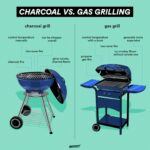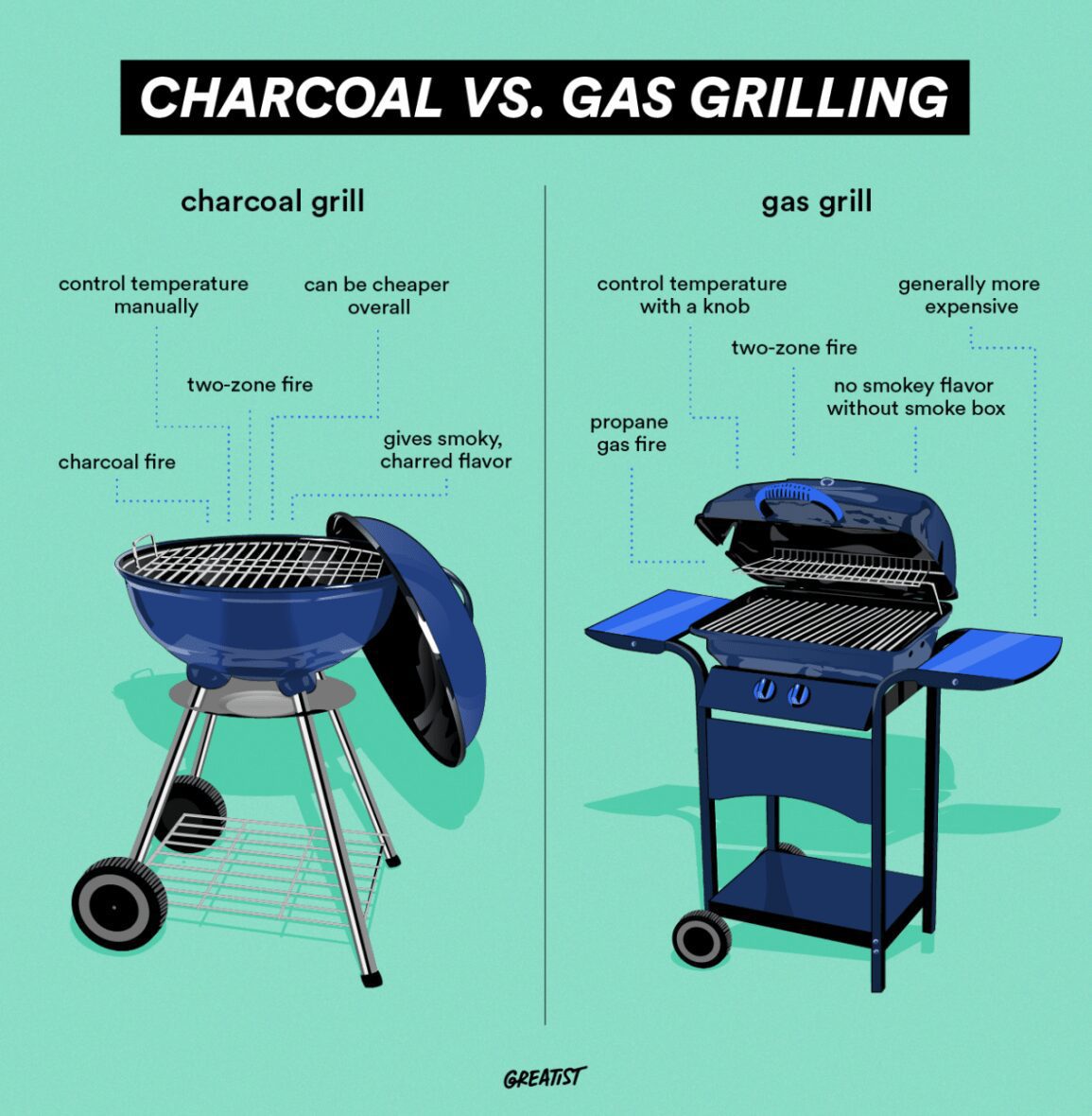
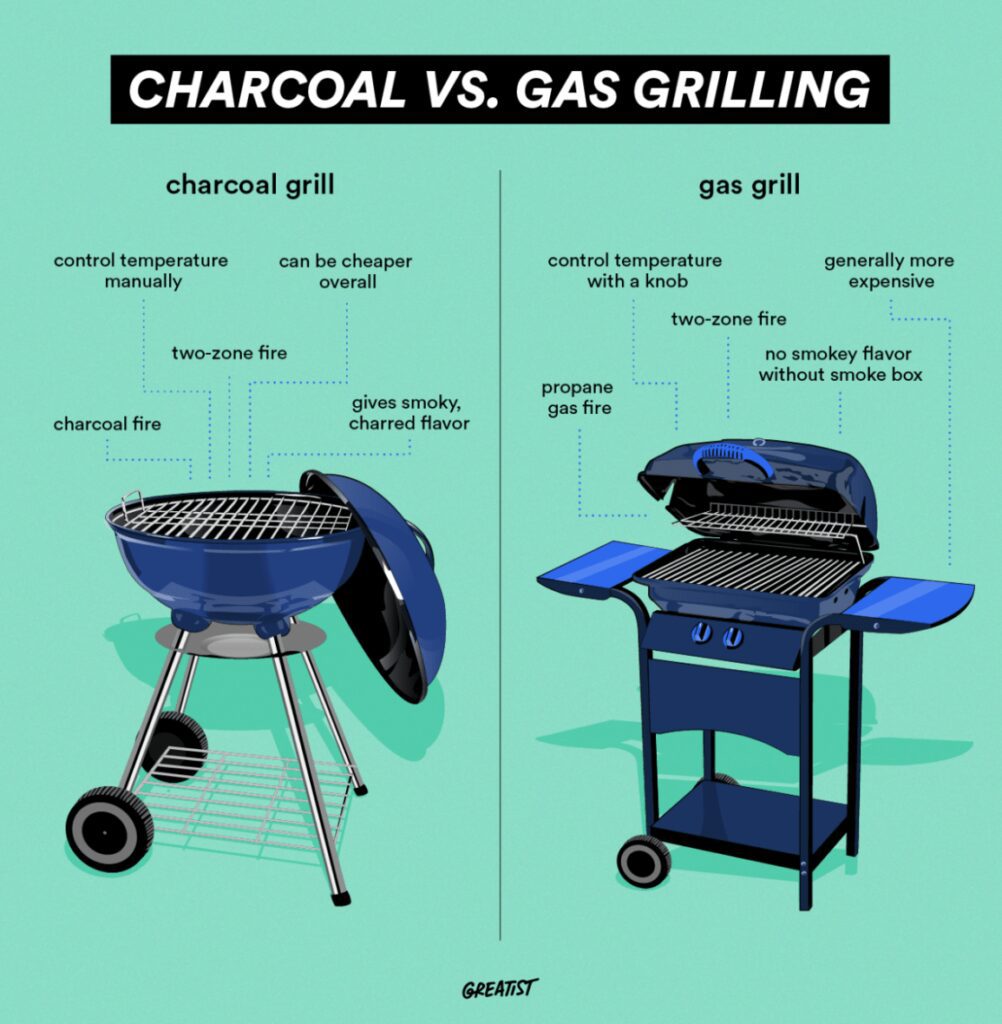
This image is property of i0.wp.com.
Are you tired of the endless debate on whether wood or charcoal is the superior choice for grilling? Look no further! In this article, we will explore the age-old question and provide you with all the information you need to make an informed decision.
Discover each option’s unique flavors, benefits, and drawbacks, and find out which will take your grilling game to the next level. Say goodbye to the confusion, and let us guide you through the smoky world of wood and charcoal grilling. Wood and charcoal have unique advantages and disadvantages when it comes to grilling.
In this article, we will explore the benefits and drawbacks of using wood and charcoal for grilling and the flavor differences between the two. We will also discuss the different types of wood and charcoal that can be used for grilling, the environmental impact of each, and safety considerations to keep in mind. By the end of this article, you’ll better understand which option is best for you based on your preferences, desired flavor, cooking needs, convenience, and environmental impact.
Benefits of Wood for Grilling:
Adds Unique Flavour to Food
One of the key benefits of using wood for grilling is the unique and smoky flavour it imparts to the food. Different types of wood, such as oak, hickory, applewood, and mesquite, each have distinct flavours that enhance the taste of your grilled dishes.
Wood’s natural and aromatic characteristics can add depth and complexity to your meats, vegetables, and other grilled foods, giving them a delicious and authentic smoky flavorr that is hard to replicate with other fuels.
Produces High Heat
Wood is known for producing high heat levels, which is excellent for achieving that perfect sear on your meats. The intense heat generated by burning wood allows for quick and even cooking, helping seal the juices and create mouthwatering flavors.
Whether you’re grilling a thick steak or a delicate piece of fish, the high heat produced by wood can help you achieve that coveted caramelized crust while keeping the inside tender and juicy.
Burns Slower Than Charcoal
Wood burns at a slower pace compared to charcoal, making it ideal for long grilling sessions. This slower burn rate ensures a consistent heat source, allowing you to maintain a steady temperature throughout the cooking process. Whether you’re slow-cooking ribs or smoking a brisket, wood can provide the consistent heat needed to achieve tender and flavorful results.
Drawbacks of Wood for Grilling
Requires More Time to Start The Fire
One of the drawbacks of using wood for grilling is that it can take more time and effort to start the fire compared to charcoal. Wood needs to be properly seasoned and dried before use, and it may require additional kindling and time to ignite. If you’re looking for a quick and convenient grilling option, wood may not be the best choice, especially if you’re short on time or don’t have access to well-seasoned wood.
Can be More Difficult to Control The Temperature
Controlling the temperature can be more challenging when using wood for grilling. Wood fires can be unpredictable, and it may require frequent adjustments to maintain the desired temperature. While this can be seen as an opportunity for experimentation and skill-building, it may not be ideal for those who prefer a more controlled and precise cooking environment.
Benefits of Charcoal for Grilling
Provides Consistent Heat
One of the biggest advantages of using charcoal for grilling is its ability to provide consistent heat. Charcoal briquettes and lump charcoal are specifically designed to burn at a steady temperature, allowing for more precise temperature control during the grilling process.
This consistency makes it easier to achieve the desired doneness for a variety of foods without worrying about sudden temperature fluctuations.
Lightweight and easy to transport
Charcoal is lightweight and easy to transport, making it a popular choice for grilling on the go. Whether you’re heading to a picnic, camping trip, or tailgate party, charcoal is a convenient option that can be easily packed and carried. Its portability makes it a favorite among outdoor enthusiasts who love to grill in different locations.
Produces Less Smoke
Compared to wood, charcoal produces less smoke when used for grilling. This can be advantageous if you’re grilling near your home or in an enclosed space, as less smoke means fewer chances of setting off smoke alarms or creating a smoky environment.
Additionally, reduced smoke production can minimize the risk of excessive smokiness overwhelming the natural flavors of the food.
Drawbacks of Charcoal for Grilling
May Require Lighter Fluid to Ignite
One potential drawback of charcoal is that it may require the use of lighter fluid or other accelerants to ignite. Lighting charcoal can be a bit more involved compared to wood, as it often needs assistance to get the fire started. While this may not be an issue for some, others may find it inconvenient or prefer a more natural ignition method.
May Contribute to a Chemical Taste in Food
Another drawback of charcoal is that it can sometimes contribute to a chemical taste in the food. In certain cases, particularly when lighter fluid or other chemical starters are used, the residues from these substances can transfer onto the food and alter its flavor. This can be mitigated by using natural charcoal options and allowing the coals to fully ash over before cooking.
It does Not Add a Distinct Flavor.
Unlike wood, charcoal does not add a distinct flavor to the food. While it provides a reliable heat source and imparts a desirable smoky taste, it lacks the variety of flavors that wood can offer. If you’re looking specifically for the unique flavor profiles associated with different types of wood, charcoal may need to be able to deliver the same level of complexity.
Flavor Difference Between Wood and Charcoal Grilling
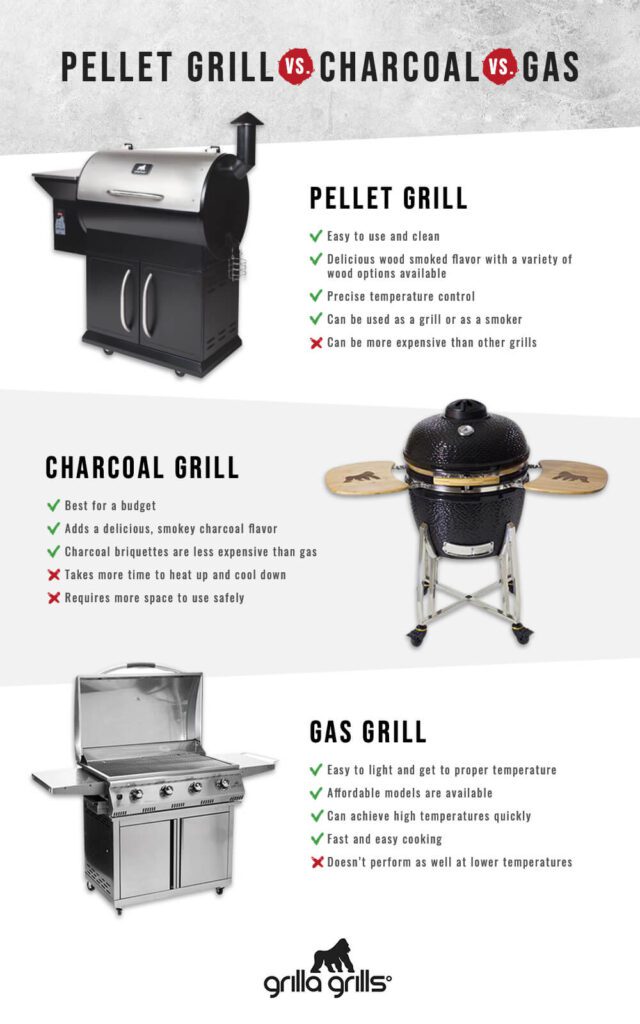
This image is property of cms.grillagrills.com.
Wood-grilled Flavor
Wood-grilled foods are known for their rich and distinct smoky flavor. The choice of wood type can greatly influence the final taste, with each wood species imparting its own unique characteristics. Oak, for example, adds a robust and hearty flavor, while hickory provides a sweeter and more bacon-like taste.
Applewood adds a subtle fruity sweetness, and mesquite imparts a strong and bold smoky flavor. When using wood for grilling, you can achieve a more pronounced and multi-dimensional taste that can elevate your dishes to new heights.
Charcoal-Grilled Flavour
While charcoal does not offer the same range of flavor options as wood, it still provides a delicious and desirable smoky taste. The combustion process of charcoal results in the release of volatile compounds that infuse the food with a distinct smokiness.
While the flavor may be less pronounced compared to wood, charcoal grilling can still create mouthwatering dishes that are enjoyed by many grill enthusiasts.
Wood Species for Grilling
When choosing wood for grilling, it’s important to select the right species that complements your desired flavor profile. Here are some popular options:
Oak
Oak wood is a versatile option that provides a robust and smoky flavor to grilled foods. It pairs well with various meats and can withstand long grilling sessions without overpowering the natural flavors of the food.
Hickory
Hickory is known for its sweet and bacon-like flavor. It adds a rich and savory taste to grilled foods, making it a popular choice for ribs, pork, and poultry.
Applewood
If you’re looking for a more subtle and fruity flavor, applewood is an excellent option. It enhances the taste of pork, poultry, and fish, giving your dishes a delicate hint of sweetness.
Mesquite
Mesquite wood imparts a strong and bold smoky flavor, perfect for those who prefer intense and robust tastes. It pairs exceptionally well with beef, giving grilled steaks a mouthwatering flavor profile.
Charcoal Types for Grilling
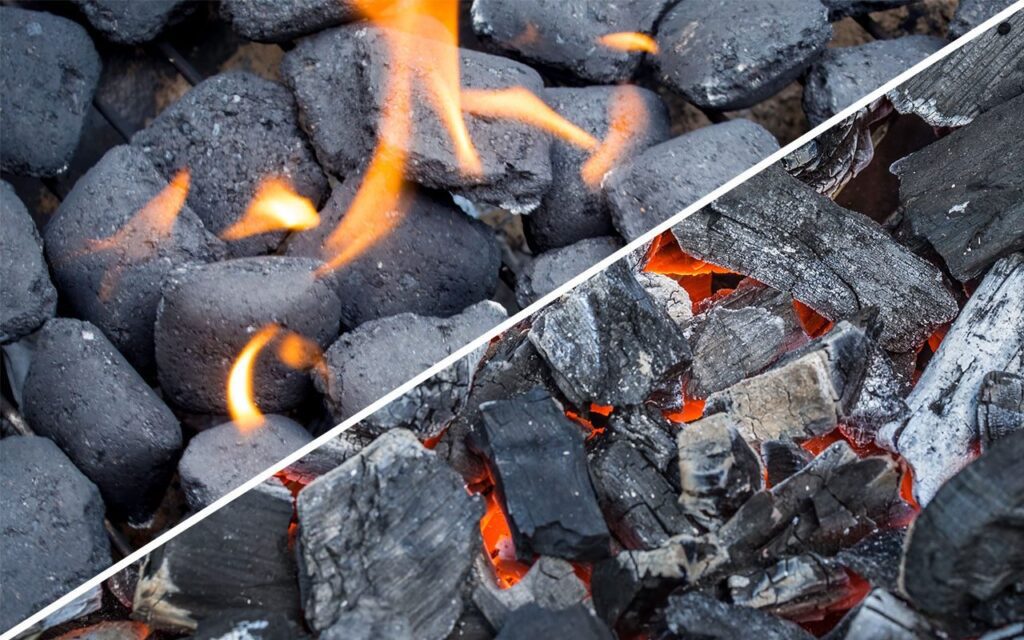
This image is property of www.tasteofhome.com.
There are two main types of charcoal that are widely used for grilling:
Charcoal Briquettes
Charcoal briquettes are a popular choice for grilling due to their uniform shape, ease of use, and consistent burning properties. They are made from a mixture of charcoal, binders, and other additives that help with ignition and combustion.
Lump Charcoal
Lump charcoal is natural charcoal that is made by burning wood in the absence of oxygen. It comes in irregularly-shaped lumps or chunks and is often favored by grilling purists due to its minimal processing and additives. Lump charcoal tends to burn hotter and faster than briquettes, providing a more intense grilling experience.
Environmental Impact of Wood and Charcoal Grilling
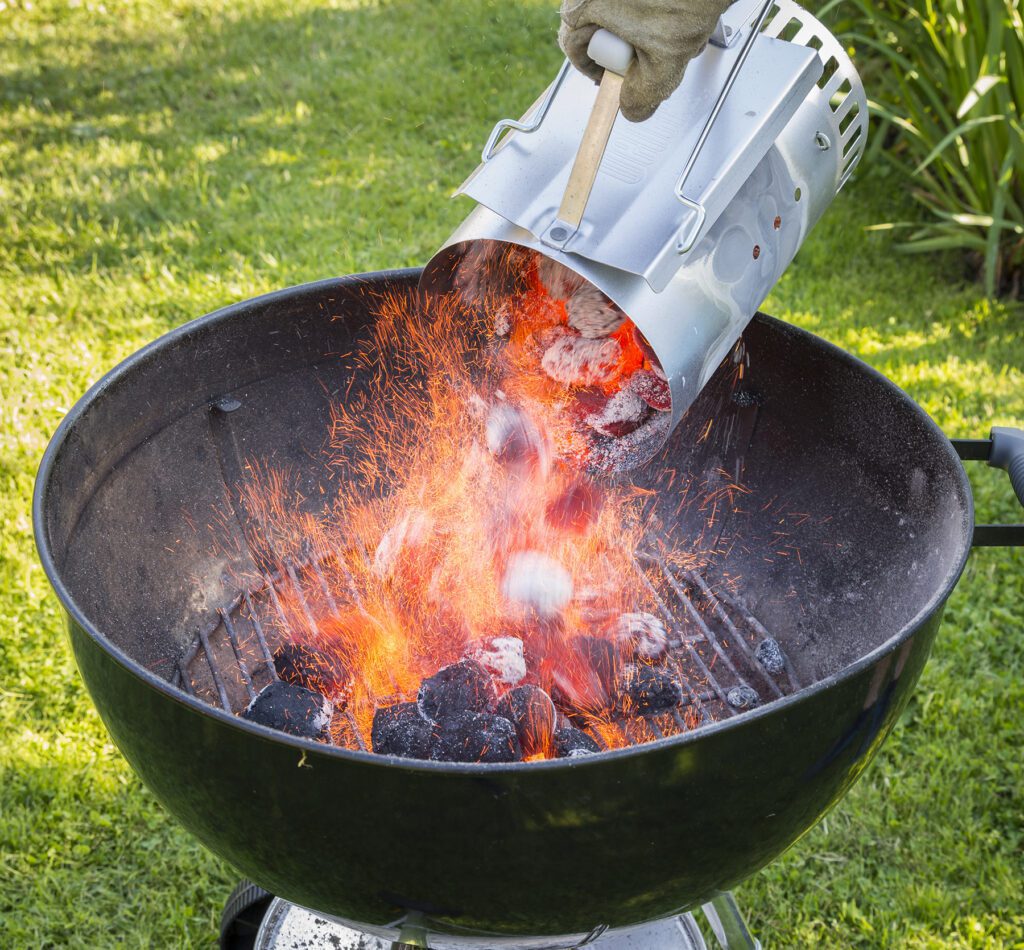
This image is property of middlebury.coop.
Wood as a Renewable Resource
Wood used for grilling can be sourced from sustainably managed forests or even from fallen branches and trees. When harvested responsibly, wood can be considered a renewable resource as trees can be replanted and regrown. It is important to choose wood that is harvested sustainably and avoid using wood from endangered tree species.
Charcoal Production and Deforestation
The production of charcoal, on the other hand, can have a negative impact on the environment. Charcoal is typically made from wood that undergoes a process called carbonization, where it is heated in low-oxygen conditions to remove moisture and volatile compounds.
This process requires a significant amount of wood, which can contribute to deforestation and habitat loss if not managed sustainably. It is crucial to choose charcoal brands that prioritize responsible sourcing and support initiatives that focus on reforestation and conservation efforts.
Safety Considerations
When grilling with wood or charcoal, it’s important to prioritize safety. Here are some key considerations:
Proper Ventilation
Whether you’re grilling with wood or charcoal, it’s essential to ensure proper ventilation to prevent the accumulation of smoke and carbon monoxide. Grilling should always be done in open spaces or well-ventilated areas to minimize the risk of inhaling harmful gases. Avoid grilling in enclosed spaces such as garages or tents.
Handling and Disposing of Ashes
After grilling, remember to handle and dispose of the ashes safely. Wait until the ashes have cooled down completely before handling or disposing of them. Use a metal container to store the ashes and keep it away from combustible materials. Always follow the recommended guidelines for ash disposal to prevent fire hazards.
Conclusion
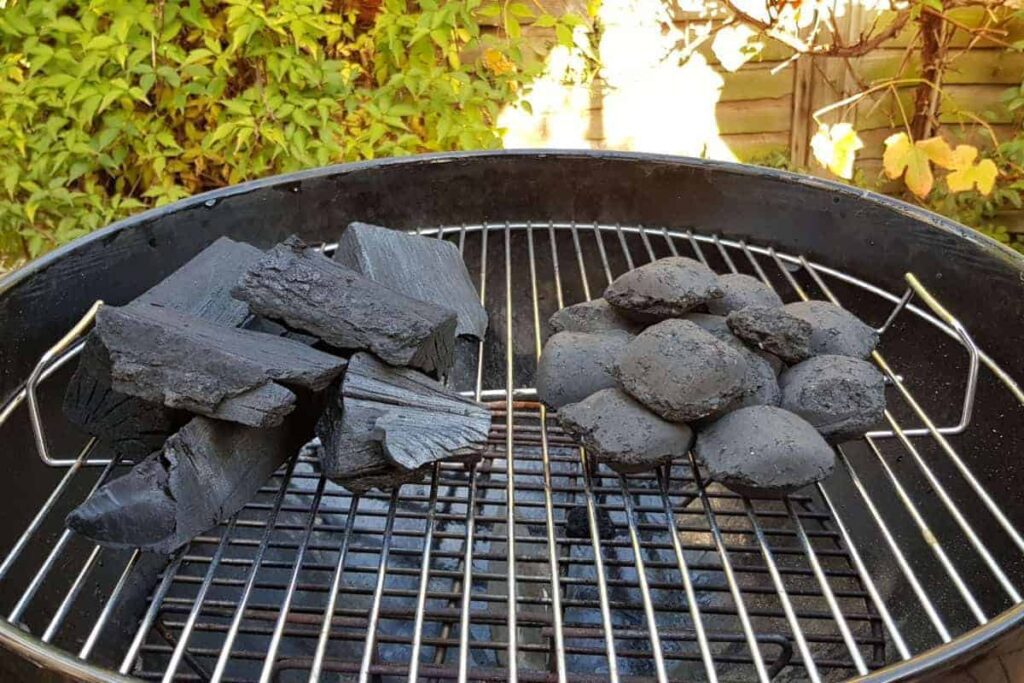
This image is property of www.foodfirefriends.com.
When deciding between wood and charcoal for grilling, it ultimately comes down to personal preference and the desired flavor profile you wish to achieve. Wood offers a unique and diverse range of flavors, high heat production, and a slow burn rate ideal for long grilling sessions.
Charcoal, on the other hand, provides consistent heat, easy transportability, and less smoke production. Consider factors such as cooking time, temperature control, convenience, and the environmental impact of your fuel choice when making your decision. With the information provided in this article, you can now make a well-informed choice and confidently embark on your grilling adventures!
